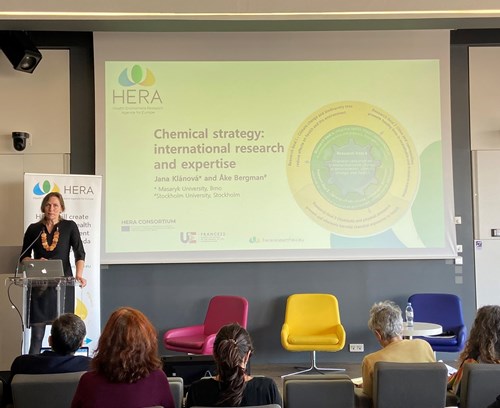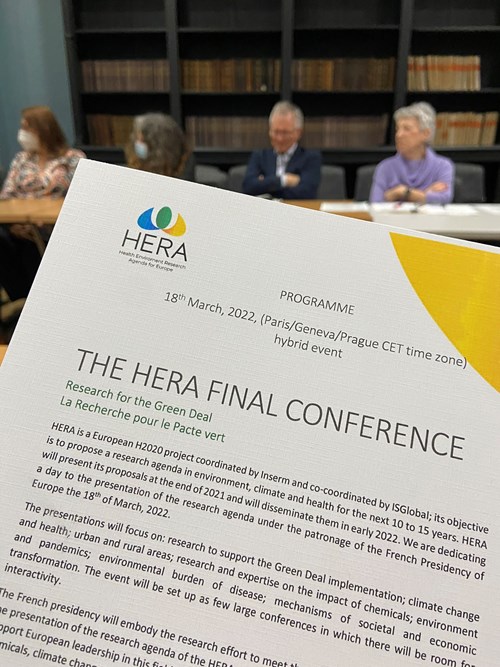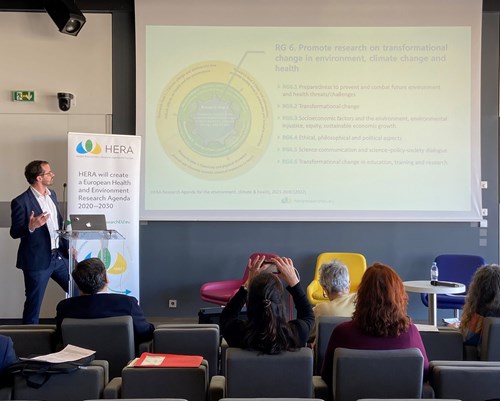Due to the COVID-19 pandemic, HERA project meetings were held primarily online during the last two years. In that sense, the conference was unique as participants met in person. The main agenda of the conference was the presentation of the specific research topics on which research in the priority areas should focus. The priority areas determined to be the most critical included climate change, biodiversity, health impacts of urban living, science-to-policy, chemicals, and research infrastructures. The last two are fields where RECETOX's expertise lies, and Jana Klánová presented these topics at the conference. She stressed that the problem of chemical exposures cuts across all the other objectives: "Global pollution concerns air, water or soil, but also the indoor environment, products, and waste. It is linked to agricultural production, food quality, and the effects of urbanization on the environment. Also, it contributes to the development of chronic diseases in the population and is one of the factors affecting climate change and biodiversity loss. We need to define the mechanisms of action of chemicals on hormonal balance, the immune system, fertility, or neurodevelopment in children. And also, to specify new methods for assessing all these risks simultaneously and better understand how the social environment determines differences in chemical exposure."
Regarding communication and education, Lukáš Pokorný emphasized that the specific objectives identified in this area must be an organic part of all the other HERA project aims.
Lukáš adds: "One of the few positive effects of the COVID-19 pandemic was that it acted as an imaginary magnifying glass under which previously neglected problems appeared before us almost overnight. Poor communication and mistrust among scientists, politicians, and the general public resulted in chaos that created space for misinformation. This led to the recognition that collaboration between the humanities and natural sciences is essential for the successful implementation of policies. Epidemiological measures are not effective in and of themselves without properly communicating and addressing the associated social aspects. I am pleased that these are precisely the areas that HERA has focused on and provide concrete answers."
The conference also included a discussion on other uses of the HERA outputs. It is expected that the suggested priority research areas will be used not only in formulating research priorities at the EU and national levels but also at the university level. The document, as well as its executive summary, is available on the project website https://www.heraresearcheu.eu/.








